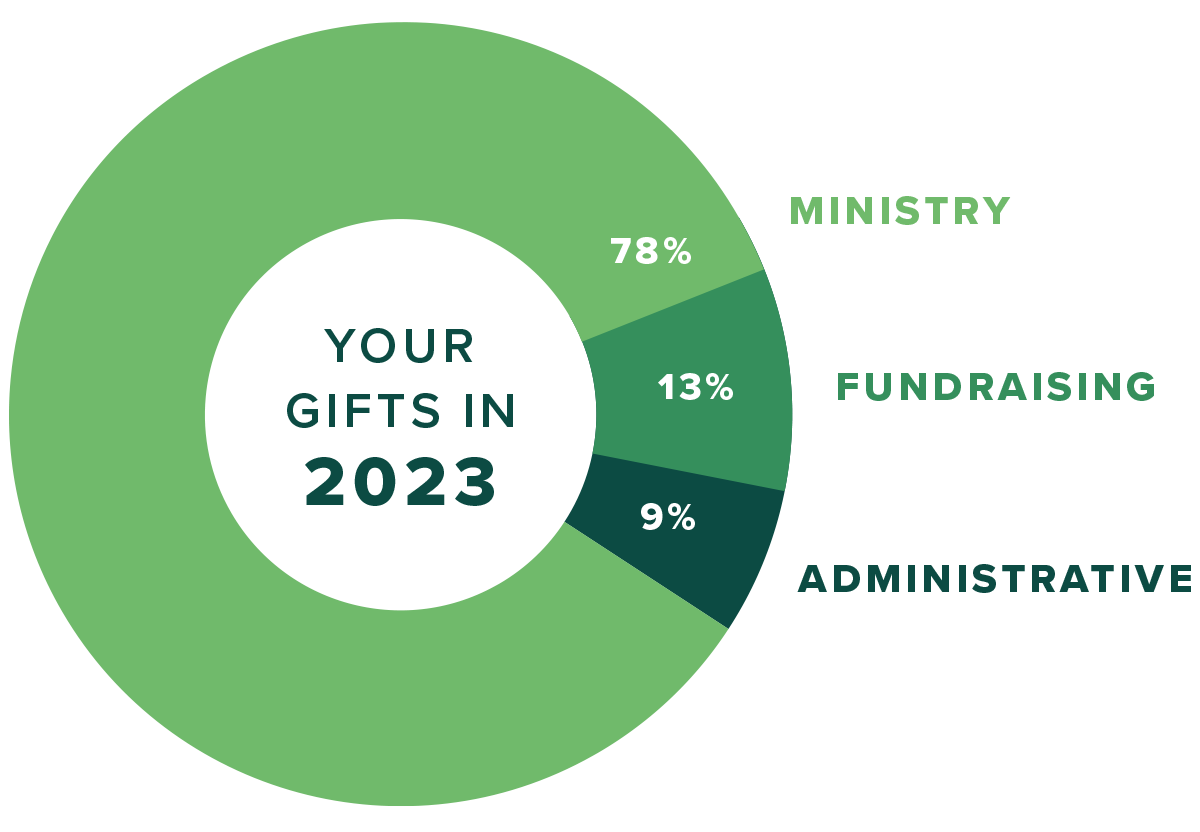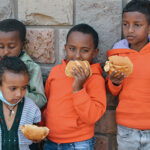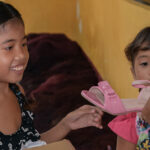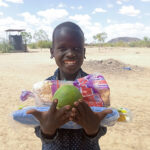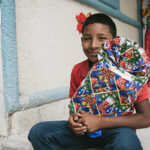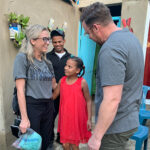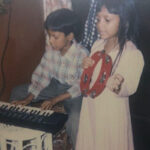Josela Lopez, Field Communications Specialist in Honduras, interviewed Melissa Franco, a doctor in charge of kids’ health at OneChild Hope Centers throughout the country, to learn more about how she helps answer the call to poverty by supporting kids there.
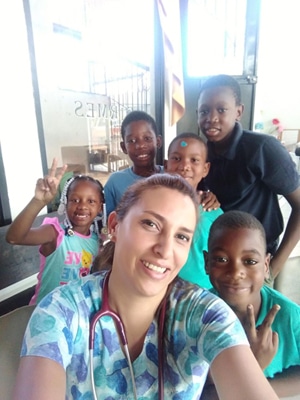 Dr. Melissa Franco oversees all medical care for children in OneChild’s program in Honduras. Dr. Franco has been practicing medicine for 10 years and is passionate about serving and helping others. Five years ago, a OneChild Hope Center was in front of Dr. Franco’s mother´s house. Dr. Franco watched the kids coming in and out of the center and thought that it would be wonderful to be able to help them. Recently, she started to manage the medical areas for OneChild in Honduras. Dr. Franco is thrilled to be helping the kids and says, “This was God is in His big mercy that gave me the opportunity.”
Dr. Melissa Franco oversees all medical care for children in OneChild’s program in Honduras. Dr. Franco has been practicing medicine for 10 years and is passionate about serving and helping others. Five years ago, a OneChild Hope Center was in front of Dr. Franco’s mother´s house. Dr. Franco watched the kids coming in and out of the center and thought that it would be wonderful to be able to help them. Recently, she started to manage the medical areas for OneChild in Honduras. Dr. Franco is thrilled to be helping the kids and says, “This was God is in His big mercy that gave me the opportunity.”
Q: What are some health challenges that our kids face?
A: Most have low weight, and a few of them have malnutrition. The most common illnesses among our kids are colds, sore throats, and asthma.
Q: How many kids do you check per year?
A: We check more than 4,500 kids every six months. Some are checked much more often because of their conditions.
Q: How many doctors work with OneChild in Honduras?
A: Three doctors and three assistants.
Q: When a child is diagnosed with malnutrition or respiratory illness, what is the procedure to follow?
A: If they are low in weight or are diagnosed with malnutrition, we deworm kids first, and we give them vitamins. We talk to the parents and the Hope Center and let them know about the kids’ condition and we make sure they understand the importance of giving them substantial meals and vitamins on time. We have seen a good response in kids. Some have overcome low weight and are now at a regular scale and others have come from malnutrition to low weight, which is great. This doesn’t mean that we don’t continue to check them. We work with them until they overcome their low weight.
With respiratory issues we make sure to give them medicines and antibiotics if needed and let the parents know about the importance of fulfilling the antibiotic as indicated.
Q: What happens if the family can’t buy food for a kid diagnosed with malnutrition?
A: The Hope Centers are always attentive to children’s family condition, and if the family can’t buy food, the Hope Center prepares a food donation for the whole family, making sure the child is going to overcome malnutrition; even nutritional supplements like Pediasure are bought by the Hope Center.
Q: Where do medicines come from?
A: From the Sponsors, thank God for them. Within the monthly donation they give, there is an amount of money designated for medical care. This is what allows us to buy medicines. We manage around 43-45 different types of medicines for our kids. The medicine is totally free for kids. Rarely, we ask them to buy something we don’t have, but if the family can’t afford medicine, the Hope Center buys this medicine for them, all with the sponsors donations.
Q: What is the procedure to follow with a healthy kid?
A: Healthy kid? In Honduras just a very few of kids can be called healthy. A healthy kid is a kid who’s good in size, weight, height, and doesn’t have any health problems. But with the very few of them we always supply vitamins and check them twice a year.
Q : Do many children in Honduras visit a pediatrician or general doctor?
A: The chance for a kid to visit a doctor is almost none. The free health centers are not always located in areas that are nearby, and by the time they get there, probably it is going to be full. And paying a private doctor is not within their capacities. An appointment with a pediatrician could be around $50, and our families live on $2 a day.
Therefore, parents get excited every time there is a medical visit day at their children’s Hope Center because they know they will get a diagnosis and free medicines/antibiotics.
Q: During the coronavirus pandemic what has been done to help keep our kids healthy?
A: We have been working on bringing up the immune system of our kids since February 2019, and by this year since we heard about Coronavirus we made sure all our kids got vitamins. In Honduras school have been in lockdown since March 9, and the rest of population since March 16. We have been sending information to the directors of Hope Centers letting them know the correct way to wash hands, sending them correct information about COVID-19 and telling them to please make sure kids are at home.
Q : Are any of our kids infected with coronavirus?
A: Praise the Lord none of our kids currently have coronavirus. People are doing a great job staying home.
Q: If any of our kids gets coronavirus what is the procedure to follow?
A: I am in constant communication with the Hope Center Directors, and they pass the information to their Child Champions. We’ve let them know: 1) which are the correct symptoms 2) which places they need to go in case they have these symptoms and 3) call us, at any time, if they have any doubts.
Q: What’s going to happen after COVID-19?
A: We’ve been addressing the correct preventions among our kids by building up their immune systems. We are going to continue reinforcing correct hygiene among them and their families. Also, we are going to continue with workshops for parents. And we will continue to do our best for these kids.
Q: What would you like to say to sponsors?
A: I want to give a special thanks to sponsors. What they do is amazing! We have seen the gratitude within the families. Without their support these kids could not have access to a doctor. Thanks from Honduras!
We are accountable to the children we serve AND to our donors.
Our accountability to our donors is one of our highest priorities. Our goal is to use the funds entrusted to us as wise stewards. To do this requires continued monitoring of our fund distribution. OneChild is also a member in good standing with the Evangelical Council for Financial Accountability (ECFA)
